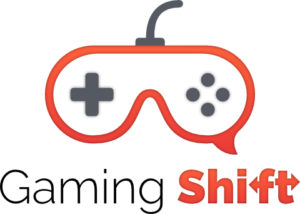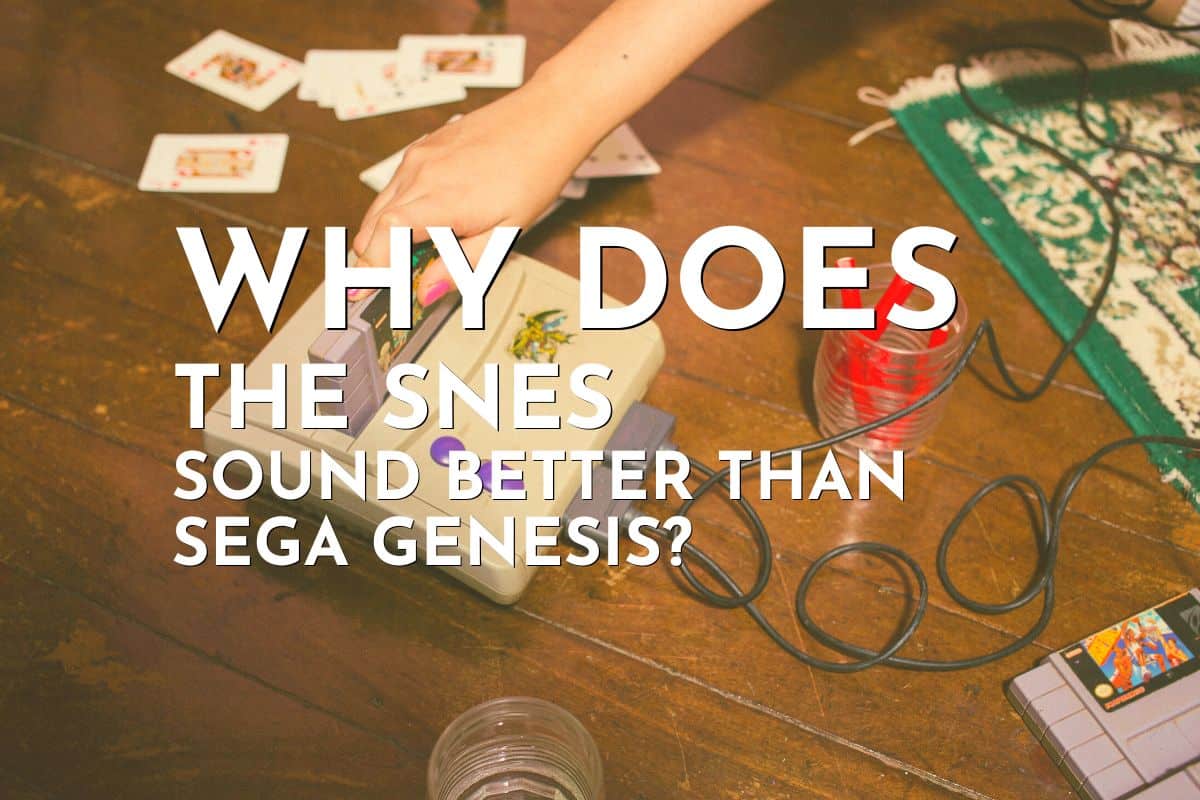Console wars of today are nothing like the one’s gamers of the 1980s and 1990s experienced. This was peak Nintendo vs Sega, with both sides trying to one-up each other. While both 16-bit consoles have their strengths and weaknesses, one thing most gamers agree on is that SNES sounded better.
Why does the SNES sound better than Sega Genesis? It comes down to the sound processors used in both consoles, with SNES being better at sample-based audio while Genesis relied more on frequency modulation. Orchestral soundtracks with lots of instruments sound better on SNES while fast-paced rock tracks with electronic riffs are better on Genesis.
Initially, American devs struggled to understand the Sega Genesis sound hardware. And a lack of proper coordination with the Japanese developers certainly didn’t help (sound design manuals were in Japanese). The GEMS sound driver was created to help American composers for Genesis, but it’s also responsible for the “tinny” sound that is criticized by so many Genesis owners.
Why Does The SNES Sound Better Than Sega Genesis?
Many gamers from that era (the late 80s, early 90s) will come to a consensus that the SNES sounds better. But those who have put in sufficient time on both consoles will say they are just different. Some games sound better on SNES, while others are better on Genesis.
It’s a matter of utilizing the strengths and weaknesses of each console. Towards the later half of the SNES lifecycle, it received a lot of high-quality games with excellent soundtracks. While Sega sidelined Genesis in favor of their 32-bit Saturn console.
Plus, a lot of developmental issues were faced by Western composers who were unfamiliar with the Genesis sound chip. Plus, the Japanese Sega HQ didn’t do a good job of communicating and coordinating with their American counterparts. That’s why the GEMS driver had to be created, which is responsible for the reduction in the quality of many soundtracks.
That’s why you’ll often find that Japanese soundtracks for the same game are better on Genesis. Plus, soundtracks cannot be directly compared between Genesis and SNES. Because they get slightly different games rather than direct ports, with different sound designers and composers.
For example, take Teenage Mutant Ninja Turtles: Turtles in Time (SNES) and compare it to Teenage Mutant Ninja Turtles: Hyperstone Heist (Genesis). Both of these are side-scrolling beat ’em-ups released by Konami in 1992 for home consoles. Konami reused the soundtracks from Turtles in Time for Hyperstone Heist but made some modifications to better suit Genesis hardware.
Turtles in Time features a sample-based soundtrack with crisp musical notes and high-quality vocals. Hyperstone Heist has the same soundtracks and sound effects but plays them faster. Plus, they sound less “instrumental” and more “electronic”.
As a result, it’s hard to say which one is objectively “better”. Of course, you also have plenty of shovelware games on Genesis that sound terrible. But the same is also true for SNES.
If you want to get a feel for how good electronic and rock music can sound on Genesis, check out the soundtracks for Thunder Force IV and Streets of Rage 2. And if that doesn’t convince you, check out the OST “Flood of Power” by Hitoshi Sakimoto for Midnight Resistance. Some say the Genesis versions sound even better than the arcade version.
Was The SNES Better Than The Genesis?
From a hardware perspective, it was a mixed bag. The SNES got more RAM but Genesis featured a faster CPU. If you wanted instruments and orchestral music (ideal for JRPGs), SNES was your top choice.
But those that wanted rock and fast-paced synthesizer soundtracks (ideal for beat ‘em up games) drifted towards Sega’s Genesis. Genesis had a simpler controller with 3 buttons because it was released during the late 1980s as an NES rival. Hence, Nintendo managed to one-up them with the SNES controller that featured 6 buttons.
Some folks prefer the more “twangy” sound of Genesis compared to SNES. For example, check out this comparison of how Street Fighter 2 sounds on both consoles. Depending on your tastes, you might prefer one version over the other.
At the end of the day, SNES was released 2 years after Genesis and features more advanced hardware. Thanks to its larger memory pool, the SNES could deliver bigger sprites, more colors, and higher resolutions. Plus, SNES had more audio channels so it sounded better in a lot of cross-platform games.
How Much RAM Was Dedicated To Audio On The SNES?
Nintendo’s SNES uses an audio subsystem designed by Sony that operates independently of the main processor. This subsystem is comprised of the Sony S-SMP processor, and the Digital Signal Processor (DSP). To contain and process audio samples, 64KB of memory is allocated.
Composers and sound designers who created masterpieces like the Donkey Kong Country and Final Fantasy VI soundtracks worked within this limitation. Even though SNES has 8 audio channels, with each capable of MIDI sampling, developers were limited to 64KB of memory.
Was The SNES Underpowered?
For its time, SNES was the most advanced home console. Beating out Sega’s Genesis in terms of audio processing and overall memory capacity. With twice the general-purpose RAM of Genesis and more video RAM, SNES could output prettier graphics. You got more colors on the screen at the same time, with larger sprites, and all this was done at higher resolutions.
It even had a more advanced sound processor- 8 channels, with each capable of MIDI sampling. In comparison, the Genesis has 10 channels which it gets by combining the 6-channel Yamaha YM2612 with the 4-channel SN76496 from the Master System. However, Genesis relies on FM synthesis while SNES gets higher-quality instrument samples.
Did SNES Games Run At 60 FPS?
Most games on SNES run at 60FPS, simply due to the NTSC standard which is set to 60Hz for analog TVs. However, PAL region games ran at 50FPS (50Hz analog signal over there). Some developers wouldn’t optimize their game code for the PAL port, and as a result, games would simply run slower with sluggish audio.
Thankfully, we don’t have to deal with these issues today and games run the same no matter which part of the world you live in. But it’s interesting that even back then 60FPS was the standard. Granted, some SNES games were simply too graphically demanding to run at 60FPS.
Like Super Double Dragon, which runs at 30fps on SNES. Then, you have Star Fox which is a rail shooter with 3D graphics. It ran at a mind-numbing 20FPS (but hey, it was worth it for the revolutionary graphics back then).
Did The SNES Outsell The Genesis?
It did and by a lot. As in 49.1 million vs 30.7 million. A big reason for this is Nintendo’s commitment to its console and a focus on maintaining support for high-quality games till the end of the console’s lifespan.
Meanwhile, Sega got sidetracked by projects such as Saturn. And they pretty much told their fans that Genesis was outdated, on the cusp of releasing Saturn. Genesis was discontinued in 1997, while Nintendo kept shipping SNES games until 1999 in America and 2003 in Japan.
Conclusion
I hope this article gives you an idea of why so many people think that SNES sounds better than Genesis. This is true to a certain extent because SNES can emulate Genesis sound pretty well while it doesn’t work the other way around. However, there are composers on the Sega side of things who learned how to extract maximum value from the Genesis audio system.
As a result, there are some amazing-sounding games on Genesis. Like Thunder Force IV, Castlevania Bloodlines, Midnight Resistance, etc. In general, Genesis excelled at synth-focused electronic rock music while SNES was better at orchestral and instrumental soundtracks.

